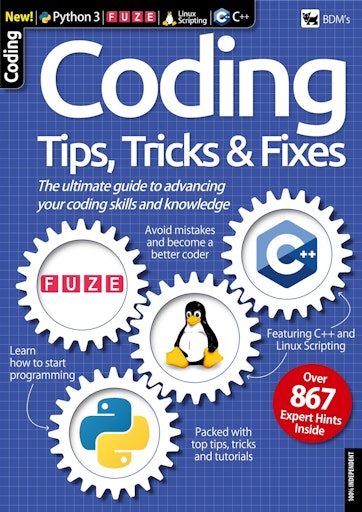

Boost Your Productivity: 10 Time-Saving Coding Tricks
In the world of coding, efficiency is key. Every coder dreams of finding that magical trick or tip that will save them time and frustration, allowing them to work smarter, not harder. Fortunately, there are numerous coding tricks and techniques that can help you boost your productivity and streamline your workflow. In this article, we’ll explore 10 time-saving coding tricks that every coder should know.
Mastering Loops: Essential Tips for Efficient Coding
Loops are a fundamental concept in programming, allowing you to execute a block of code repeatedly. However, not all loops are created equal, and understanding how to use them efficiently can make a big difference in your coding productivity. One tip for mastering loops is to use the most appropriate loop for the task at hand. For example, if you know the exact number of iterations you need, a for loop may be more appropriate than a while loop.
Debugging Demystified: Pro Tips for Swift Solutions
Debugging is an inevitable part of the coding process, but it doesn’t have to be a headache. With the right approach and tools, you can quickly identify and fix bugs in your code. One pro tip for effective debugging is to use breakpoints. By strategically placing breakpoints in your code and stepping through it line by line, you can pinpoint exactly where the problem lies and fix it more efficiently.
Advanced Git Techniques: Maximizing Collaboration Efficiency
Git is a powerful version control system that is essential for collaborative coding projects. However, many coders only scratch the surface of what Git can do. By mastering advanced Git techniques such as rebasing, squashing commits, and using interactive rebase, you can streamline your collaboration process and avoid common pitfalls like merge conflicts.
Coding Clean: Best Practices for Maintaining Readable Code
Writing clean, readable code is not only good for your sanity, but it’s also essential for collaboration and maintainability. One best practice for maintaining readable code is to follow a consistent naming convention. Whether it’s variables, functions, or classes, using clear and descriptive names can make your code much easier to understand for yourself and others.
Unleash the Power of Regex: Tips for Effective Pattern Matching
Regular expressions, or regex, are a powerful tool for pattern matching and text manipulation. However, they can also be complex and intimidating for beginners. One tip for mastering regex is to break down your pattern into smaller, more manageable parts. By tackling one component at a time and testing as you go, you can gradually build up to a complex regex pattern without feeling overwhelmed.
From Novice to Ninja: Essential Python Tips for Beginners
Python is a popular programming language known for its simplicity and versatility. If you’re just starting out with Python, there are a few tips that can help you level up your skills quickly. One tip is to make use of Python’s built-in functions and libraries whenever possible. Python has a rich standard library that includes modules for everything from file I/O to web scraping, so take advantage of these resources to avoid reinventing the wheel.
Code Optimization Strategies: Enhance Performance Like a Pro
Optimizing your code for performance is essential, especially when working on large-scale projects or performance-sensitive applications. One strategy for code optimization is to minimize unnecessary operations and function calls. By carefully analyzing your code and eliminating redundant or extraneous code, you can improve performance and reduce execution time.
Simplify Your Workflow: Essential VS Code Hacks
Visual Studio Code (VS Code) is a popular code editor known for its simplicity and extensibility. However, many coders are unaware of the numerous hacks and shortcuts that can help them work more efficiently. One essential VS Code hack is to use keyboard shortcuts for common tasks. By memorizing and regularly using shortcuts for tasks like navigating files, formatting code, and running tests, you can save valuable time and streamline your workflow.
Crafting Elegant CSS: Tips for Stylish Web Design
CSS is the language of web design, allowing you to style and layout web pages to create stunning visual experiences. However, writing CSS can sometimes feel like a tedious and repetitive task. One tip for crafting elegant CSS is to use preprocessors like Sass or Less. These tools allow you to write CSS more efficiently by using variables, mixins, and functions, making your code more modular and easier to maintain.
Error Handling Mastery: Strategies for Robust Code
Error handling is a critical aspect of writing robust and reliable code. By anticipating and gracefully handling errors, you can prevent your code from crashing and provide a better user experience. One strategy for error handling is to use try…catch blocks to gracefully handle exceptions. By wrapping potentially error-prone code in a try block and catching any exceptions that occur, you can gracefully handle errors and prevent them from propagating up the call stack. Read more about coding tricks and tips








